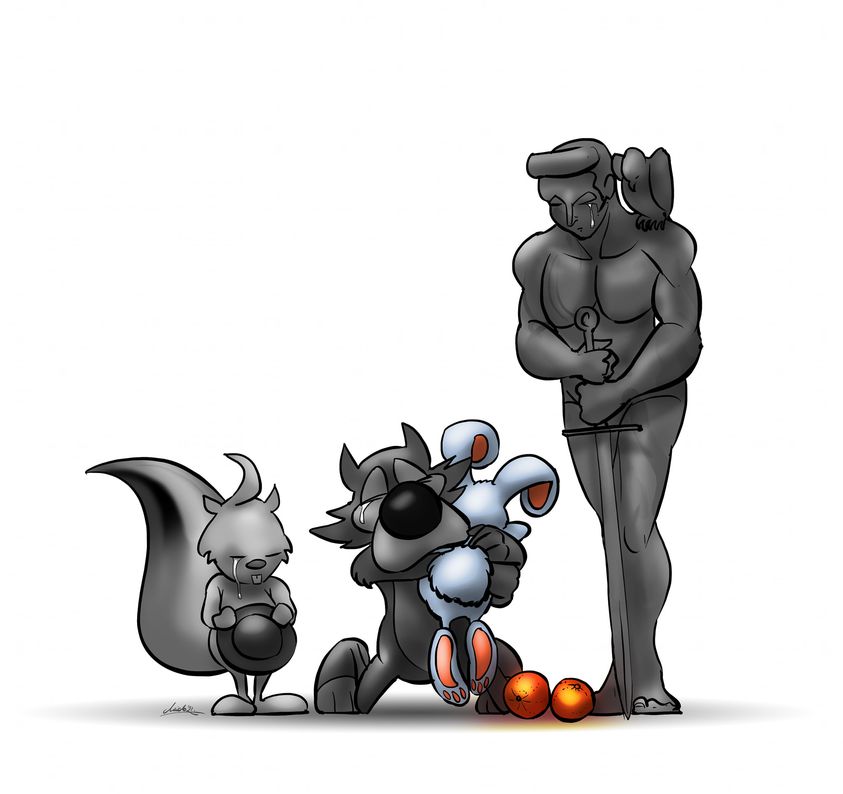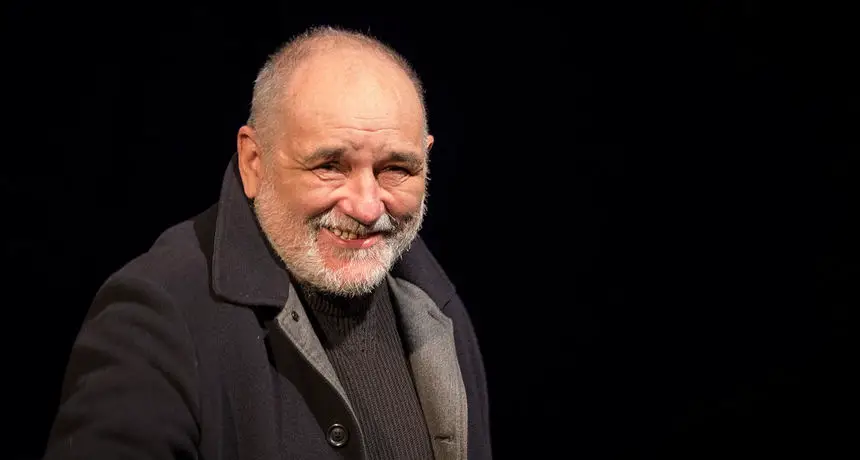Đorđe Balašević was born in 1953 in Novi Sad, and his solo career as a singer-songwriter started in 1982. He released 12 albums, and his concerts were among the biggest events for his fans throughout his career. During the wars in former Yugoslavia in the nineties, he was strongly on the side of peace, against nationalism, fighting and killing. He was not allowed to perform in Croatia for years (his last concert before the war in Zagreb was in 1989, and he was quite attached to Zagreb as he spent some time living there), and his anti-war and anti-nationalism stance made him very unpopular with the political establishment during Milošević’s in Serbia as well. So, during the early nineties, it was almost impossible to hear any of his timeless hits on any radio stations in former Yugoslavia.

Famous Sarajevo cartoonist Midhat Kapetanovic posted to Facebook this touching work in memoriam following news of the beloved singer’s death. The image shows Zagi the squirrel, mascot of Zagreb (from the 1987 Universiade), Vučko the wolf, mascot of Sarajevo (from the 1984 Winter Olympics) and the Mestrovic statue Pobednik (The Victor), the eternal symbol of Belgrade, united in grief. Vučko can be seen comforting a white bunny and there are two mandarins at their feet. It became a tradition for mandarins and toys – particularly white toy rabbits – to be affectionately thrown onto the stage by audience members when Đorđe Balašević performed the song ‘Neki novi klinci’ © Midhat Kapetanovic
After the war, he has performed all over Croatia again, sharing with his devoted audience both his older hits and the newer songs which he wrote during the period when he was not performing. His concerts have always been quite long, sometimes lasting for more than four hours, and in addition to the music itself, included elements of stand-up comedy by Balašević himself. In 1998, the Washington Post compared Balašević to Bob Dylan in their story about his concerts in war-devastated Bosnia.
It’s almost impossible to summarize his opus into one post, and to single out some of his best songs and performances for an international audience. If you ask almost any person from former Yugoslavia, they will have a story about Balašević, having been to one (or many) of his concerts, having sung some of his songs at various parties of their youth, having loved and lost with his music as a background. They will have so many different answers to the question of which is their favorite Balašević song, if they’re at all able to single one out. So, below you can find one fan’s selection of his greatest songs:
Most fans are probably not able to listen to Slovenska today, as it talks about what he wanted to happen to him if he passed away young.
Spontaneous mourning on the streets of Zagreb after news of the singer’s death broke, as published by Croatian portal Index










